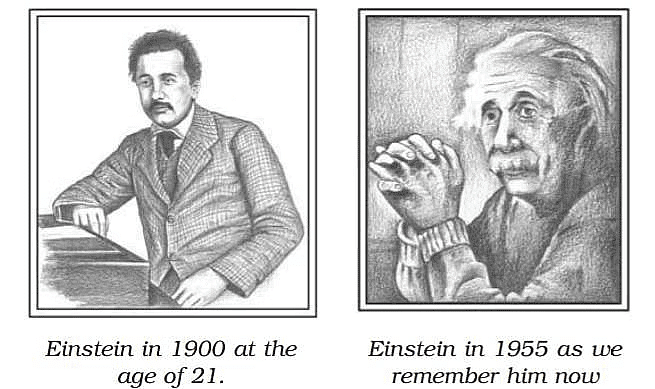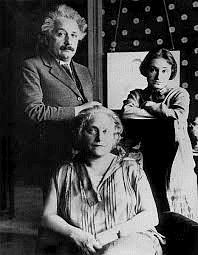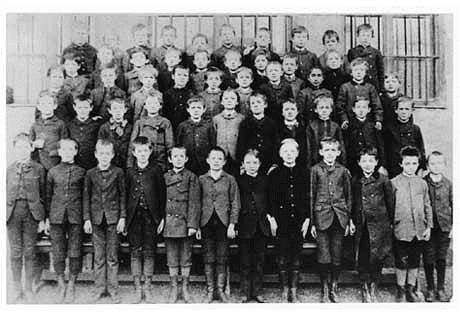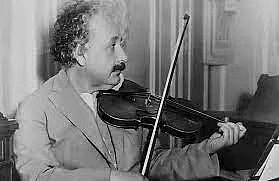NCERT Solutions for Class 9 English Beehive Chapter 4 - A Truly Beautiful Mind
Thinking About the Text
Q1: Here are some headings for paragraphs in the text. Write the number(s) of the paragraph(s) for each title against the heading. The first one is done for you.(i) Einstein’s equation
Ans: 9
(ii) Einstein meets his future wife
Ans: 7
(iii) The making of a violinist
Ans: 3
(iv) Mileva and Einstein’s mother
Ans: 10
(v) A letter that launched the arms race
Ans: 15
(vi) A desk drawer full of ideas
Ans: 8
(vii) Marriage and divorce
Ans: 11

Q2: Who had these opinions about Einstein?
(i) He was boring.
Ans: Einstein’s playmates thought that he was boring.
(ii) He was stupid and would never succeed in life.
Ans: Einstein’s headmaster thought that he was stupid and would never succeed at anything in life.
(iii) He was a freak.
Ans: Einstein's mother considered him a freak due to his unusual behaviour and appearance.
Q3: Explain the reasons for the following:
(i) Einstein leaving the school in Munich for good.
Ans: Einstein left the school in Munich because he disliked its strict discipline. He found the environment too rigid and felt stifled by the regimentation imposed by the school.
(ii) Einstein wanting to study in Switzerland rather than in Munich.
Ans: He preferred to study in Switzerland because it was a more liberal country compared to Munich, allowing for greater freedom in his education and personal expression.
(iii) Einstein seeing in Mileva an ally.
Ans: Einstein found in Mileva an ally because she, like him, disapproved of the “philistines” or those who lacked appreciation for art, literature, and music. This common ground helped them bond over their shared values.
(iv) What do these tell you about Einstein?
Ans: These points illustrate that Einstein was a liberal individual who valued freedom and had a unique perspective on life. He was not afraid to challenge conventional norms and sought connections with those who shared his views.

[ ] Einstein published his special theory of relativity.
[ ] He is awarded the Nobel Prize in Physics.
[ ] Einstein writes a letter to U.S. President, Franklin D. Roosevelt, and warns against Germany’s building of an atomic bomb.
[ ] Einstein attends a high school in Munich.
[ ] Einstein’s family moved to Milan.
[ ] Einstein was born in the German city of Ulm.
[ ] Einstein joins a university in Zurich, where he meets Mileva.
[ ] Einstein dies.
[ ] He provides a new interpretation of gravity.
[ ] Tired of the school’s regimentation, Einstein withdraws from school.
[ ] He works in a patent office as a technical expert.
[ ] When Hitler comes to power, Einstein left Germany for the United States.
Ans:
(i) Einstein is born in the German city of Ulm.
(ii) Einstein attends a high school in Munich.
(iii) Einstein’s family moves to Milan.
(iv) Tired of the school’s regimentation, Einstein withdraws from school.
(v) Einstein joins a university in Zurich, where he meets Mileva.
(vi) He works in a patent office as a technical expert.
(vii) Einstein publishes his special theory of relativity.
(viii) He provides a new interpretation of gravity.
(ix) He is awarded the Nobel Prize in Physics.
(x) When Hitler comes to power, Einstein left Germany for the United States.
(xi) Einstein writes a letter to U.S. President, Franklin D. Roosevelt, and warns against Germany’s building of an atomic bomb.
(xii) Einstein dies.
Thinking About Language
I. Here are some sentences from the story. Choose the word from the brackets which can be substituted for the italicised words in the sentences.
Q1: A few years later, the marriage faltered. (failed, broke, became weak)
Ans: A few years later, the marriage became weak.
Q2: Einstein was constantly at odds with people at the university. (on bad terms, in disagreement, unhappy)
Ans: Einstein was constantly in disagreement with people at the university.
Q3: The newspapers proclaimed his work as “a scientific revolution.” (declared, praised, showed)
Ans: The newspapers declared his work as “a scientific revolution.”
Q4: Einstein got ever more involved in politics, agitating for an end to the arms buildup. (campaigning, fighting, supporting)
Ans: Einstein got ever more involved in politics, campaigning for an end to the arms build-up.
Q5: At the age of 15, Einstein felt so stifled that he left the school for good. (permanently, for his benefit, for a short time)
Ans: At the age of 15, Einstein felt so stifled that he left school permanently.
Q6: Five years later, the discovery of nuclear fission in Berlin had American physicists in an uproar. (in a state of commotion, full of criticism, in a desperate state)
Ans: Five years later, the discovery of nuclear fission in Berlin had American physicists in a state of commotion.
Q7: Science wasn’t the only thing that appealed to the dashing young man with the walrus moustache. (interested, challenged, worried)
Ans: Science wasn’t the only thing that interested in the dashing young man with the walrus moustache.
II. Study the following sentences.
- Einstein became a gifted amateur violinist, maintaining this skill throughout his life.
- Letters survive in which they put their affection into words, mixing science with tenderness
The parts in italics in the above sentences begin with –ing verbs, and are called participial phrases. Participial phrases say something more about the person or thing talked about or the idea expressed by the sentence as a whole.
For example: – Einstein became a gifted amateur violinist. He maintained this skill throughout his life.
Q1: Complete the sentences below by filling in the blanks with suitable participial clauses. The information that has to be used in the phrases is provided as a sentence in brackets.
1. __________, the firefighters finally put out the fire. (They worked round the clock)
2. She watched the sunset above the mountain, __________ (She noticed the colours blending softly into one another)
3. The excited horse pawed the ground rapidly, __________ (While it neighed continually)
4. __________, I found myself in Bangalore, instead of Benaras. (I had taken the wrong train)
5. __________, I was desperate to get to the bathroom. (I had not bathed for two days)
6. The stone steps, __________ needed to be replaced. (They were worn down)
7. The actor received hundreds of letters from his fans, __________ (They asked him to send them his photograph)
Ans:
1. Working round the clock, the firefighters finally put out the fire.
2. She watched the sunset above the mountain, noticing the colours blending softly into one another.
3. The excited horse pawed the ground rapidly, neighing continually.
4. Having taken the wrong train, I found myself in Bangalore, instead of Benaras.
5. Not having bathed for two days, I was desperate to get to the bathroom.
6. The stone steps, being worn down, needed to be replaced.
7. The actor received hundreds of letters from his fans, asking him to send them his photograph
Writing Newspaper Reports
Here are some notes which you could use to write a report.
21 August 2005 — original handwritten manuscript of Albert Einstein unearthed — by student Rowdy Boeynik in the University of the Netherlands — Boeynik researching papers — papers belonging to an old friend of Einstein — fingerprints of Einstein on these papers — 16-page document dated 1924 — Einstein’s work on this last theory — behaviour of atoms at low temperature — now known as the Bose-Einstein condensation — the manuscript to be kept at Leyden University where Einstein got the Nobel Prize.
Write a report which has four paragraphs, one each on:
- What was unearthed.
- Who unearthed it and when.
- What the document contained.
- Where it will be kept.
Your report could begin like this:
Student Unearths Einstein Manuscript
21 AUGUST 2005. An original handwritten Albert Einstein manuscript has been unearthed at a university in the Netherlands…
Ans:
Student Unearths Einstein Manuscript
21 AUGUST 2005. An original handwritten Albert Einstein manuscript has been unearthed at a university in the Netherlands.
It was unearthed by a student, Rowdy Boeynik, while researching papers when he came across some papers belonging to an old friend of Einstein.
The 16-page document, dated 1924, contained fingerprints of Albert Einstein. It has Einstein’s work on this last theory, i.e., the behaviour of atoms at low temperature, which is now known as the Bose-Einstein condensation.
The manuscript will be kept at Leyden University, where Einstein got the Nobel Prize.
|
263 videos|1418 docs|124 tests
|
FAQs on NCERT Solutions for Class 9 English Beehive Chapter 4 - A Truly Beautiful Mind
| 1. Who is the main character in "A Truly Beautiful Mind"? |  |
| 2. What are some key qualities of Albert Einstein mentioned in the article? |  |
| 3. How did Albert Einstein's personality affect his relationships? |  |
| 4. What impact did Albert Einstein have on the world? |  |
| 5. Why is "A Truly Beautiful Mind" an important story for students? |  |






















